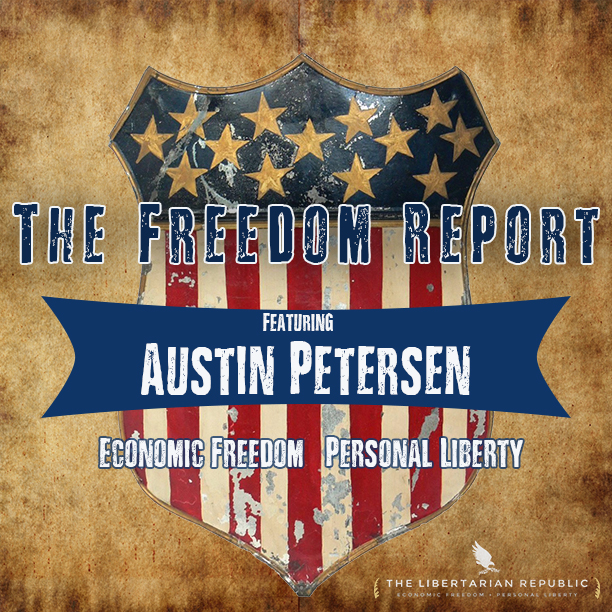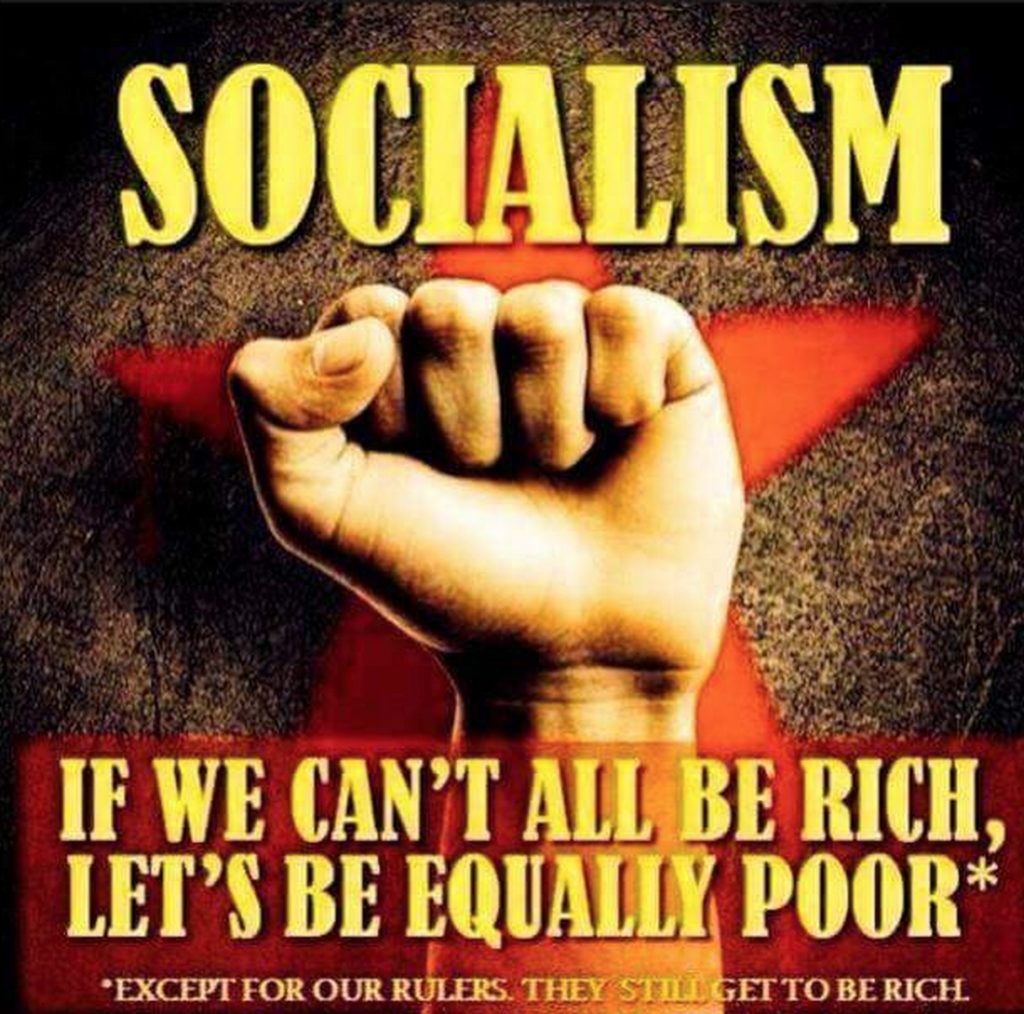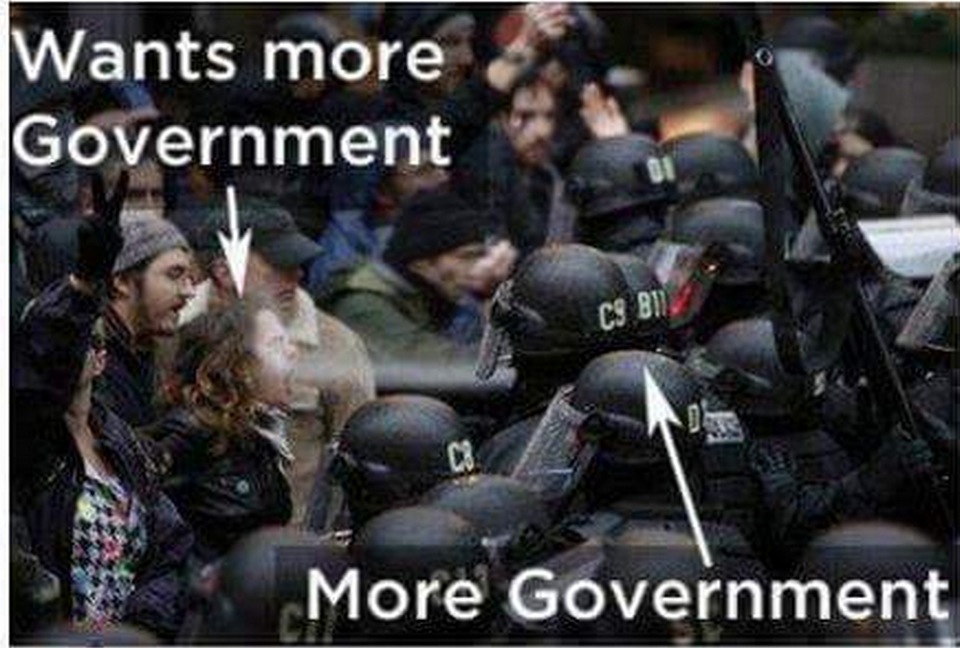Episodes
![Everybody's Angry At This Pharmaceutical CEO, But Here's The Inconvenient Truth [PODCAST]](https://thelibertarianrepublic.podbean.com/mf/web/598fvh/ScreenShot2015-09-23at82338AM.jpg)
Wednesday Sep 23, 2015
Wednesday Sep 23, 2015
Pharmaceutical CEO Is Predictably Douchey, Everybody's Angry
[dropcap size=small]T[/dropcap]his week, news came out that a life-saving drug invented in 1953 was recently acquired by a pharmaceutical company and the price was quickly raised from $14 a tablet to $750 a tablet. This price spike has created a flurry of outrage about greedy pharmaceutical companies, and most of it has been directed specifically towards Turing Pharmaceuticals’ CEO, Martin Shkreli.
Much of this public outcry has led to many questions: Who is this douchebag and why did he raise the price? What are patients supposed to do? Why are drugs so expensive in the first place? What would libertarians do about this?
Martin Shkreli is a former hedge fund manager. This is not the first time he’s used a company to acquire the rights to a drug and jack up the price. The last time he did was in 2014 while CEO for Retrophin Inc, and he was fired.
As of Tuesday, it appears that Martin Shkreli has heard the roar of public opinion and has announced he will lower the price, though there’s been no news on exactly what the new price will be.
Though there are many reasons libertarians might claim that this problem that wouldn’t happen in the first place without the FDA and patent law, I’d like to point out that the other way that a libertarian society would handle unfair pricing is consumers turning on companies through various forms of awareness (or "shaming") campaigns. Such as what just happened in the last three days. No law needed, just social fury, as the social justice crowd has proven repeatedly.
Daraprim is a drug that fights toxoplasmosis. Toxoplasmosis is particularly dangerous for individuals who have weakened immune systems, such as pregnant women and AIDS patients. Daraprim was purchased by Turing Pharmaceuticals on August 10th, 2015 for $55 million. Drug prices rising upon ownership changing hands is pretty common. The percentage of this increase is what is so notable about it.
We all understand that prescription drugs tend to be expensive (if not for us, then for our insurance companies). It’s a common complaint, and it’s worth it to take a moment to understand why.
Those who understand how research and development works know that new medications cost tremendous amounts to create. Though a single pill of a medication may, in actual production, cost $2 to manufacture, the first pill of it might’ve cost millions to invent. According to some studies, research and development is up to $2.5 billion. This is the cost for a single drug, except that due to the high-failure rate of pharmaceutical research, this number often includes the expense of the failures for which there will never be a way to recoup costs. Other studies, and a book called The $800 Million Pill: The Truth Behind the Cost of New Drugs, puts the costs of new medications below a billion dollars.
Why are medications so expensive to manufacture? Besides the obvious thing about the miracles of modern medical science requiring a lot of trial, error, education and experimentation, there’s also the fact that the FDA must approve drugs before they can be sold.
On average, it takes over 12 years to get a drug from laboratory to pharmacy shelves.
Once a drug has been successfully developed in a laboratory, there will be three to four years of testing before an application can be sent to the FDA, which can then approve trials on humans. Only 1 in 1000 different drug compounds developed in a laboratory is likely to make it to human testing.
The process of human testing (for safety and effectiveness) is another three years. One in five drugs makes it through human testing. Upon successful completion of that step, the company submits an application averaging 100,000 pages to the FDA, which may take another two to three years to approve it.
One in 5,000 compounds developed in a laboratory will make it through the FDA’s entire approval process, after about 12 years. There’s all that other money: the ghosts of those pills that simply didn’t survive.
Now look, I love to hate on big pharma just as much as everybody else. However, imagine you pour millions of dollars into equipment, samples, laboratory space, scientists, whatever else you need to do this, and you absolutely will not see any return from it for, on average, 12 years. That return may happen, if you’re lucky enough to have developed a compound worth testing at all, and that anybody needs or wants to buy.
Though I’m all for safe and effective medication, there’s a number of reasons the FDA doesn’t appear to be the best way to save lives or effectively respond to health crises --- one of these reasons is their abysmally long approval process that keeps medication out of the hands of those who will literally die without the chance to try it.
At the time that Daraprim underwent the FDA’s approval process, the average time from application to market was 7 months. Granted, this was prior to the Kefauver-Harris Amendment of 1962, which completely changed the way new drugs were approved and regulated in response to the thalidomide birth defects crisis.
Daraprim has been on the market for over 60 years, and clearly its research and development costs have been recouped. In fact, after so many years, the patent has expired, so a generic alternative should exist, right? However, Daraprim doesn’t have a large market. The New York Times estimated approximately 8,000 to 12,000 prescriptions are filled annually. It’s not necessarily the most financially sound move to attempt to manufacture and produce the generic, as there’s little profit incentive and some potential risks trying to compete within that market.
What’s the solution then? This is America, where he and his company have every legal right to profit, and no libertarian wants a government solution against profit. Personally, I’d rather avoid over-emphasizing our self-congratulatory libertarian analysis that “this wouldn’t have happened if we were in charge!” due to our condemnation of the FDA or frequent libertarian position against intellectual property. It helps to articulate our positions when these matters arise, but it’s not going to help this situation.
The best we can do in these moments is take the time to explain why government monopolies enable greedy people to take advantage due to a lack of competition, or without the natural regulations of the market.
In the meantime, maybe the social justice activists have a point. When you’ve got no other card to play, maybe the fact that this man’s name and face are all over Twitter, Facebook, and major news organizations as the “A**hole” or the “Douchebag” of Pharmaceuticals, is enough to make him change the prices significantly. We’ll just have to wait and see.
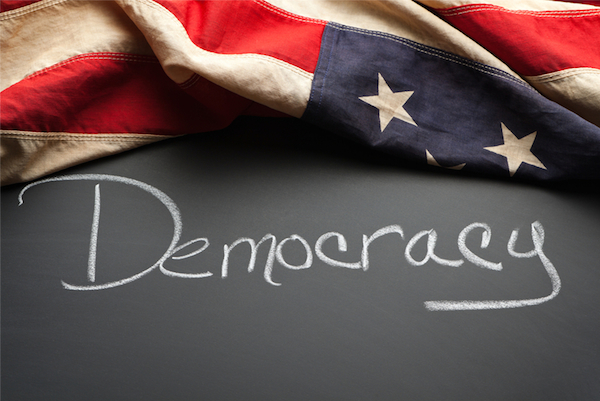
Wednesday Sep 16, 2015
CNN's Republican Debate and The Perils of Democracy
Wednesday Sep 16, 2015
Wednesday Sep 16, 2015
Does the rise of Bernie Sanders and Donald Trump show the problems with democracy? Today's Freedom Report podcast looks at the presidential debate on CNN, contrasting the campaign of Donald Trump with libertarian leaning senator Rand Paul.
![Why I Am Running for President As A Libertarian [PODCAST]](https://pbcdn1.podbean.com/imglogo/ep-logo/pbblog644901/ScreenShot2015-09-04at90713AM.jpg)
Friday Sep 04, 2015
Why I Am Running for President As A Libertarian [PODCAST]
Friday Sep 04, 2015
Friday Sep 04, 2015
Today's Freedom Report podcast discusses why editor Austin Petersen has decided to seek the nomination of the Libertarian Party for President of the United States. With the rise of right-wing populism taking over the Tea Party, Donald Trump has ridden the wave on the back of anti-free market sentiments among the right.
With Rand Paul floundering in the polls, who is left to articulate a pure libertarian message of economic freedom and personal liberty?
Leif Bieberson is here.
While some may think it's a joke, the reality is that with the current slate of presidential candidates, the joke's on all of us. America deserves to have a candidate who boldly stands up for what is right, not just what is popular.
If the Republican Party decides not to nominate Rand Paul, who will be left to stand up for these issues? Who will represent the voice of the libertarians in this national debate? Gary Johnson? Johnson had his chance, and voters didn't respond. Why not try something new?
An Austin Petersen presidency would be one of strict deregulation, limited taxation, economic freedom, less foreign interventionism, free trade, and civil rights. Today's episode of the Freedom Report podcast goes into detail over why Petersen's throwing his hat into the ring, and why you should support him.
![Dirty, Sexy, Monetary Policy: Here's How Libertarians Want Our Money System To Run... [PODCAST]](https://pbcdn1.podbean.com/imglogo/ep-logo/pbblog644901/Screen_Shot_2017-10-05_at_2_30_40_PM.jpg)
Friday Aug 28, 2015
Friday Aug 28, 2015
Professor Lawrence White, an economist from George Mason University, joins the Freedom Report podcast today to discuss free market monetary policy. At the Jackson Hole Summit, White and a group of rebel economists gathered to discuss the topic of whether or not central banks are the problem or the solution to America's financial woes.
Professor White is an advocate of "free banking," which is the Austrian economic system of ending the Federal Reserve and allowing the free market to regulate the supply of money in the marketplace. We don't allow government to set the price of bread, gas, or cars... so why do we allow them to set the price of money?
Professor White believes that money has become controlled by political interests, and thinks that the free market can more effectively allow for stable economic growth, without all the booms and busts of the modern era.
The Federal Reserve has got to go. Today's podcast delves into the nuances of monetary policy, how the Federal Reserve came to be, their track record, and what a more free market policy would work. Professor White joins us in this very special episode, broadcasting from Jackson Hole, Wyoming.
![Taxes & Tyranny: Bernie Sanders Leads To the Road to Serfdom [PODCAST]](https://pbcdn1.podbean.com/imglogo/ep-logo/pbblog644901/ScreenShot2015-08-17at122157PM.jpg)
Monday Aug 17, 2015
Taxes & Tyranny: Bernie Sanders Leads To the Road to Serfdom [PODCAST]
Monday Aug 17, 2015
Monday Aug 17, 2015
Why This Trotskyite Deserves The Icepick
Bernie Sanders supporters flooded The Libertarian Republic news magazine's website and social media sites over the weekend. A strong pushback from editor Austin Petersen against the socialist spawn of the Bernie Sanders presidential campaign uncovered a slough of economically illiterate American activists, ready to do battle for evil.
And make no mistake, socialism is evil.
The classical liberal (libertarian) economists of the 20th century penned their screeds against the statist democratic socialists movements of their day, now TLR's Freedom Report podcast takes similar aim.
Democratic socialists believe that their Trotskyite leader will prevail, and a peaceful utopia will emerge of citizens cooperating with one another voluntarily, and eventually the state will wither away... but before the state can wither away, all power must go to the state. The government supreme. All power to the so-viet!
Democratic socialists believe that a top marginal tax rate of 90% on the wealthiest citizens will "soak the rich," and stabilize the economy. They point to the 1950's as an example, when Dwight Eisenhower presided over a 91% top marginal tax rate. But why don't they ever look at effective tax rates? These show that few people actually paid those taxes, and those earning more than $100,000 paid less than 5 percent of the taxes collected in the U.S. That's a lot fewer than today.
Democratic socialist believe that their cause is just, that their progressive policies of economic centralization, and bigger government will bring utopia. Their version of socialism is just, because it is not Leninism. It's not Stalinism. This isn't War Communism, they say... no they don't. They don't know what War Communism is. They don't know what Communism is. They don't know what socialism is. They think AND SAY that North Korea is a worker's paradise.
“The average man is both better informed and less corruptible in the decisions he makes as a consumer than as a voter at political elections.”
― Ludwig von Mises
Bernie Sanders has stirred up all that is wrong with America, and today's Freedom Report podcast is a complete takedown of the would-be tyrant Bernie Sanders.
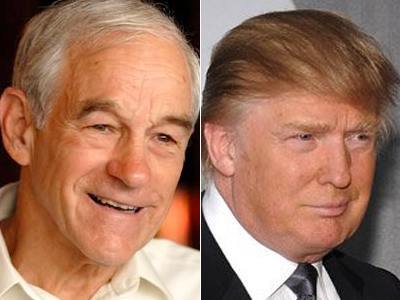
Monday Aug 10, 2015
Is Donald Trump the new Ron Paul?
Monday Aug 10, 2015
Monday Aug 10, 2015
Bloomberg writer Megan McCardle penned an interesting op-ed comparing presidential candidate Donald Trump to former POTUS challenger Ron Paul. McCardle seems to have found interesting parallels in the vociferousness of both group's supporters, and has some amusing anecdotes about being contacted by their supporters during the previous and current general elections.
Today's episode of the Freedom Report podcast looks at the supporters of Donald Trump, and contrasts those with the supporters of fellow contender for the GOP crown, Rand Paul.
Paul issued a scathing attack against Trump in the pages of IJReview, pleading with his fellow Tea Partiers not to fall for Trump's fake conservatism. But will Paul's strategy of painting Trump as a liberal backfire? And can a strategy of attacking Trump even do anything to boost Paul's sagging poll numbers? We'll analyze the difference.
And is redneck a racist term? Last Saturday, The Libertarian Republic visited a highway overpass rally populated by flag bearing conservatives. It just so happened that these supporters of limited government were flying the flag of one of the biggest would-be governments in history, the Confederacy. While a raucous debate erupted after our editor called the ethics of flying the flag into question, the ideas of how to market unpopular ideas is an important one, especially in light of the candidacy of one Donald J. Trump.
With so many calling for a revival of the Tea Party movement, it is no clearer sign that the movement is dead. But how did it die? Editor Austin Petersen explains why he believes the movement destroyed itself, and the roots lie in those who reflexively support ideas, and candidates, of which they have no knowledge.
Subscribe on iTunes, and leave us a 5-star review!
![Who Won The Republican Presidential Debate? [PODCAST]](https://pbcdn1.podbean.com/imglogo/ep-logo/pbblog644901/marco_rubio4.jpg)
Friday Aug 07, 2015
Who Won The Republican Presidential Debate? [PODCAST]
Friday Aug 07, 2015
Friday Aug 07, 2015
The Fox News Republican Presidential debate was an exciting, raucous event, featuring 10 candidates who polled high enough to be included. A second tier debate, held earlier in the evening, featured 7 other candidates vying for the top spot in the Republican primary. So who won?
Today's Freedom Report podcast does a full breakdown of the greatest moments of the second debate, with a nod of deference to the winner of the second tier event, Carly Fiorina. Although Fiorina failed to make the cut for the main event, her cool, even performance distinguished herself enough for many pundits and politicos to take notice. Will she make it into the big event next time? We'll look at her chances in today's show.
And what about the main event? Donald Trump stood alone in claiming that he wouldn't rule out a third party run. Senator Rand Paul immediately took him to task, arguing that he's already half in the bag for the Clintons. Trump and Paul sparred, with the two candidates verbally shuffling and jabbing one another and no clear winner. Trump landed the final blow when he poked Paul over his donating money to the senator.
Former Ohio Governor John Kasich gave a beautiful answer to the question over whether he'd support gay marriage. Kasich responded that he would always give his family unconditional love no matter what, despite his support of the conservative definition of marriage.
Dr. Ben Carson elevated the IQ on the debate stage, and although he only had a small amount of time, the retired neurosurgeon certainly made a good impression with his final closing statements. We play his remarks on today's show.
New Jersey Governor Chris Christie and Senator Paul sparred over national security, in what was clearly the most pivotal moment of the entire debate. Christie pulled the "9/11" card, while Paul argued that we should always obey the 4th amendment and the Bill of Rights. Christie claimed that while he was convicting terrorists, Paul was blowing hot air in a subcommittee, to which Paul responded that he didn't trust Obama with his personal records and stabbed Christie by saying "I know you gave him a hug."
But who was the overall winner in my opinion? You'll have to listen in to find out, and don't forget to subscribe to the Freedom Report on iTunes and leave us a 5-star review!
Sources:
A Foxy, Rowdy Republican Debate
Carly Fiorina, the Runaway Winner
Rand Paul got the least talk time
Rand Paul has the best moment in tense debate with 9/11 obsessed Chris Christie
![Patriotism, Libertarianism, and Rand Paul in Valley Forge [PODCAST]](https://pbcdn1.podbean.com/imglogo/ep-logo/pbblog644901/Rand-Paul-Wide-e1376499574332.jpg)
Saturday Aug 01, 2015
Patriotism, Libertarianism, and Rand Paul in Valley Forge [PODCAST]
Saturday Aug 01, 2015
Saturday Aug 01, 2015
These are the times that try men's souls... -Paine
Senator Rand Paul's campaign for the presidency has been reeling from bad press in the past week, many of it from (so called) current, and former supporters. An article in Politico by Jonathan Bydlak deconstructed Paul's message, comparing it to his father, and arguing that he's tired of supporting the Kentucky senator.
But while some of us may be tired, we will stand until we can stand no longer.
The heroes of the American Revolution were all too familiar with the problems of desertion, lack of courage and resolve. When times were hard, and Washington's army wintered at Valley Forge, desertions were common, as were those whose loyalties gave way to the British Crown. Now today, the modern American libertarian movement faces a similar challenge. We are engaged in a titanic struggle against vastly larger forces, better funded and equipped, with better propaganda outlets, and the backing of the US political establishment. Will we turn tail and run, or criticize our fellow patriots while we are in our darkest hour? Or will we stand with Rand, and commit to finish what we have started?
Today's episode of the Freedom Report podcast takes aim at the criticisms with some famous quotes from 1776, the words of Thomas Paine and Sam Adams. We also pull from Morton Blackwell's "Laws of the Public Policy Process" in order to examine the best possible solutions which can help govern our movement's future actions.
Also, we at The Libertarian Republic have a very exciting announcement. We've teamed up with PurplePAC, a liberty-loving political action committee aimed at helping Senator Paul get elected. The PAC is giving away $10,000 in prizes to YOU, for your best ideas on how to help Rand Paul get elected President of the United States. You heard that right. 5 people will receive $2,000 for their best ideas. And the best part is that you can enter to win as many times as you like. Simply go to purplepac.org/contest in order to enter, or just click here and submit your entry. The contest closes at the end of August, so get your entries in soon and you could not only save your pocketbook, but your country as well.
I'm here at Valley Forge, standing with Rand. Will you stand with me?
Listen:
![Here's Why It's OK To Kill Lions, & Tigers, & Bears! Oh My! [PODCAST]](https://pbcdn1.podbean.com/imglogo/ep-logo/pbblog644901/cecil29n-8-web.jpg)
Wednesday Jul 29, 2015
Here's Why It's OK To Kill Lions, & Tigers, & Bears! Oh My! [PODCAST]
Wednesday Jul 29, 2015
Wednesday Jul 29, 2015
People's emotions are running high over an incident in Zimbabwe where an American dentist killed a famous lion in a trophy hunt using a bow and arrow.
Walter Palmer is receiving death threats after it emerged that he killed "Cecil," a tourist's favorite and a protected lion from a national park. Palmer claims that he was acting in good faith, and that he didn't mean to kill a protected lion, but that hasn't stopped the death threats from people who don't understand conservation or economics.
From the Star Tribune:
Walter J. Palmer of Eden Prairie, a practicing dentist in Bloomington and a prominent bow-and-arrow hunter, issued a statement addressing the killing on July 1 of Cecil, a lion that was a favorite among tourists and wildlife researchers.
“I hired several professional guides, and they secured all proper permits,” Palmer’s statement read. “To my knowledge, everything about this trip was legal and properly handled.
“I had no idea that the lion I took was a known, local favorite, was collared and part of a study until the end of the hunt. I relied on the expertise of my local professional guides to ensure a legal hunt.”
Zimbabwe game officials said Tuesday that two of Palmer’s guides are facing charges in the incident and that they “are looking for Palmer.”
Palmer, 55, who pleaded guilty to a license violation after shooting a black bear in Wisconsin in 2008, said he has not been contacted by any authorities in Zimbabwe or the U.S., but added that he will cooperate with investigators. The public-relations firm that worked with Palmer on the statement said he was in the Twin Cities on Tuesday.
“Again, I deeply regret that my pursuit of an activity I love and practice responsibly and legally resulted in the taking of this lion,” the statement concluded.
Despite Palmer's apology, people are excoriating the dentist for the kill. Late night host Jimmy Fallon took a poke at his manhood, suggesting that Palmer take Viagra if he needed to get an erection in killing something. That's funny, but it doesn't get to the heart of the matter over whether it should be legal to trophy hunt, and whether or not it's ethical.
It's legal AND ethical. Providing the hunter does follow the proper permitting process, which in this case it may not be so. But in the instances where a trophy hunter does follow proper procedure, the extraordinary amount of money paid to hunt exotic animals is reinvested back in the natural habitat or park where the animals are taken.
Today's Freedom Report podcast takes a look at the economics of hunting, and analyzes the cost/benefit of taking wild animals.
![Is Rand Paul's Campaign Already An Epic Fail? [PODCAST]](https://pbcdn1.podbean.com/imglogo/ep-logo/pbblog644901/ScreenShot2015-07-20at10845PM.jpg)
Monday Jul 20, 2015
Is Rand Paul's Campaign Already An Epic Fail? [PODCAST]
Monday Jul 20, 2015
Monday Jul 20, 2015
Today's Freedom Report podcast takes a look at senator Rand Paul's trailing presidential campaign. Paul raised $7 million in the second quarter, with 60 percent of those donations coming from people who donated less than $200. The only campaign with more small dollar donations was Ben Carson, but the other candidates such as Jeb Bush, Marco Rubio, and Ted Cruz raised more, a lot more. So what's happening?
One supporter argued in the Wall Street Journal that Rand Paul has chased off his support base by a more interventionist sounding foreign policy. If that's true, then why hasn't the Republican base turned to Paul as their populist champion instead of blowhard like Trump?
From the WSJ:
Drew Ivers, who was the Iowa chairman for Ron Paul’s 2008 and 2012 presidential campaigns, is uncommitted so far in the 2016 race. He said Rand Paul has lost a substantial portion of his father’s following because he has deviated from his father’s isolationist foreign-policy view.
While Ron Paul backs the nuclear agreement with Iran, Rand Paul is opposed. Ron Paul called for decreasing military spending; Rand Paul is for increasing the military’s budget. Ron Paul blames the U.S. and European powers for the troubles in Ukraine; Rand Paul last year wrote an op-ed in Time magazine saying “Putin must be punished.”
“Rand needs to be articulating the negatives of our foreign policy. But he has chosen not to articulate that,” Mr. Ivers said. “These kinds of things would energize his base but he has moved away from them.”
Also, a source close to The Libertarian Republic reported that Senator Paul hasn't been asking the big money donors to give to his campaign. What gives?
All that and more on this (very rushed) episode of The Freedom Report podcast! Don't forget to subscribe to TLR for an ad-free experience!

